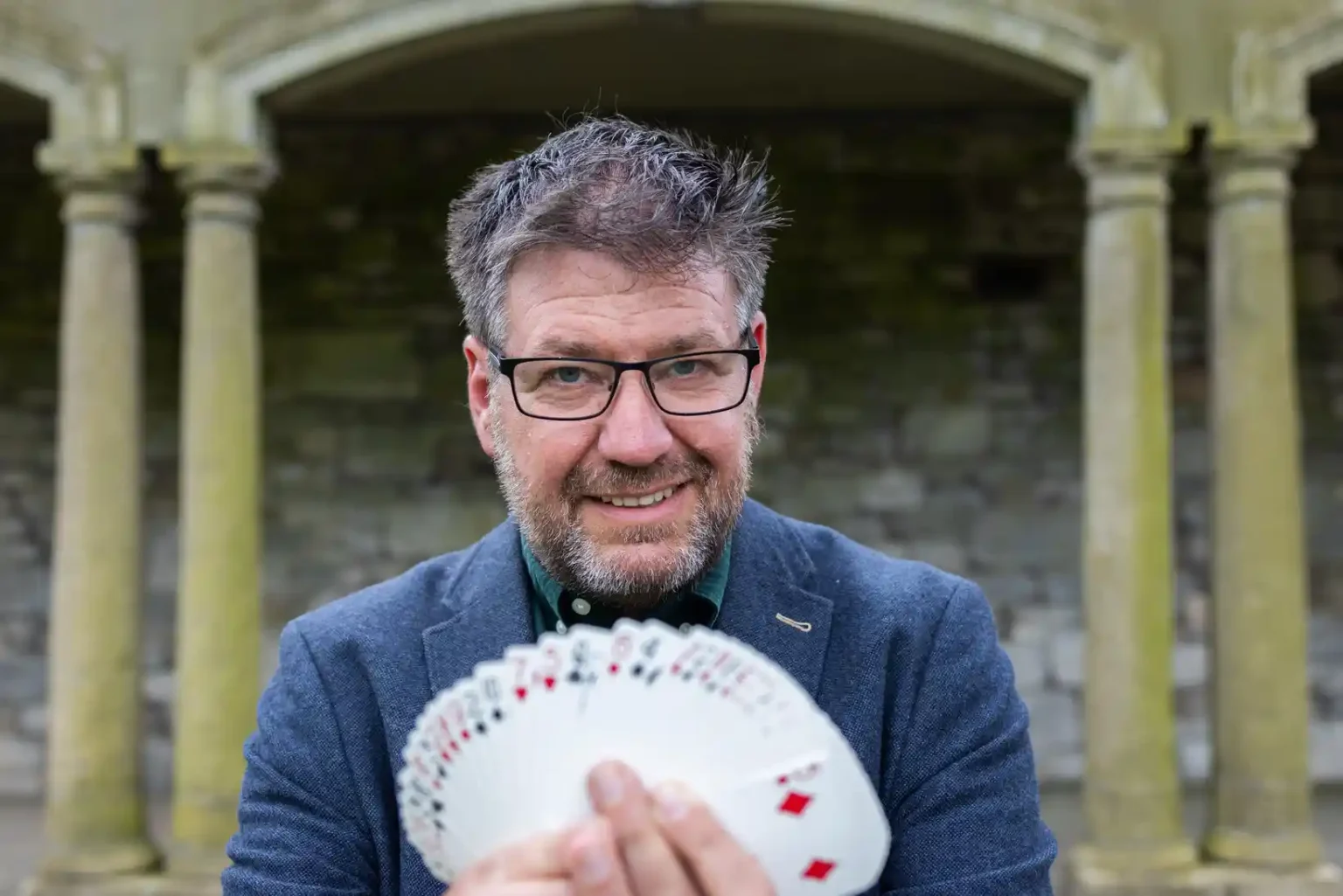Magicians can be fooled by their own conjuring tricks, experts have found.
A series of experiments showed illusionists often misread how their performances were being received by their audiences.
Over 200 practising magicians were asked for their insights on performing their acts.
READ MORE: Revellers party for just 90 minutes on disappearing sandbar at world’s shortest festival
And this was then compared with the results of experiments involving over 130 members of the public.
The results showed that magicians felt that active participation in a trick would increase participants’ sense of wonder.
Yet the participants enjoyed the trick less and were actually more confused by what was happening.
The magicians also felt that naming a card rather than physically selecting one from a deck would enable the audience to feel freer in their choices – but participants felt the opposite.
The study also found that a trick happening in a spectator’s hand was no more engaging than when it happened elsewhere while magicians had assumed the opposite.
The researchers behind the study say their findings provide important insights into the feelings that magic evokes.
This was something they hoped magicians could ultimately use to further improve their art, as reported by What’s The Jam.
The study’s senior author, Dr Gustav Kuhn is an Associate Professor in Psychology at the University of Plymouth and a Member of the Magic Circle and the Science of Magic Association.
He said: “We study magicians and magic tricks because they give us insight into how humans can be misdirected and deceived.
“Magicians produce a magic trick then decide whether it works or not.
“But we’ve found even magicians can be wrong.
“We’ve tested them in the lab and found they often misunderstood why audiences responded the way they did to their performances.
“We tested some really big assumptions that magicians have.
“One of them is that if magic happens in your hand it should be really powerful.
“A lot of magic is marketed on that principle.
“But we tested it and a lot of audience members don’t care if the trick is done in someone’s hand or elsewhere.
So, why are some magicians wrong about this?
“We don’t have a definitive answer yet.
“But what we do know is this: even with years of experience, our perceptions can still lead us astray.
“That’s why it’s so important to test our assumptions – not just trust our gut.
“It reveals a lot about the art of magic – and the workings of the human mind.”
He added: “Over many centuries, magicians have learned much about the mind and found ways of turning its quirks and blindspots into moments of astonishment.
“But magic isn’t just about tricks – it’s a powerful tool for understanding the mind’s hidden limitations – and we wanted to see if the insights and instincts developed by magicians were accurate.
“The extent to which they aren’t was somewhat unexpected and challenges a number of deeply ingrained assumptions in magic.”
Dr Radoslaw Wincza, from the University of Central Lancashire, added: “Our findings also shed new light on our sense of free will and agency.
“Raising questions about the nature of decision-making and the control we believe we have over our thoughts and actions.
“In striking contrast to what most of us would predict, people feel more in control of their actions, for example, physically selecting a card, rather than their thinking, when they are asked to think of a random card.
“It shows that our sense of control differs between our actions and thoughts, but not in the way scientists would predict.”
READ MORE: Medal awarded to hero of famed battle depicted in film Zulu starring Michael Caine sells for £40,000
